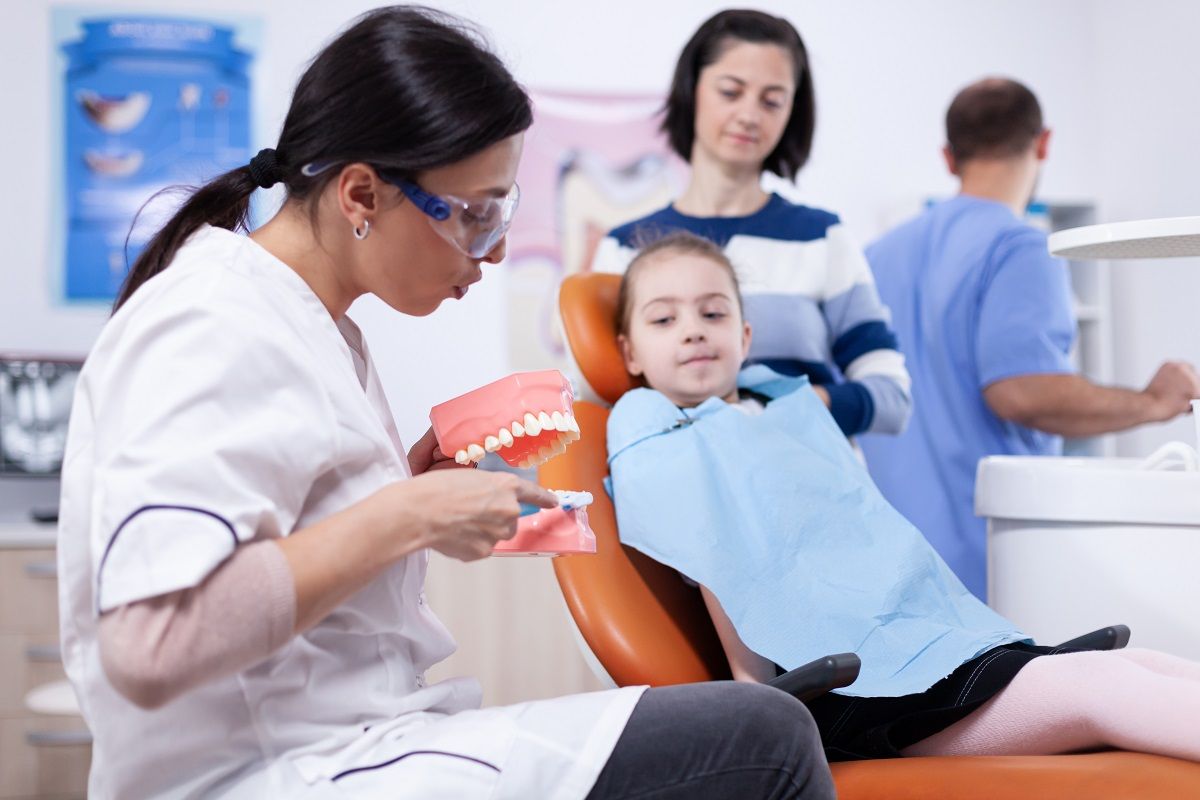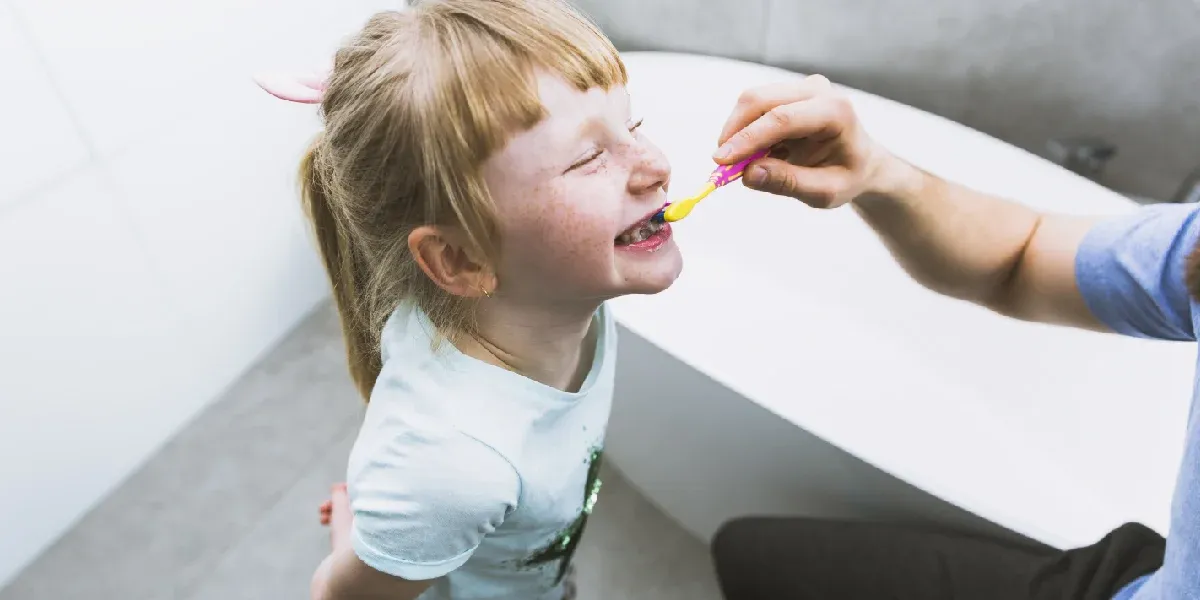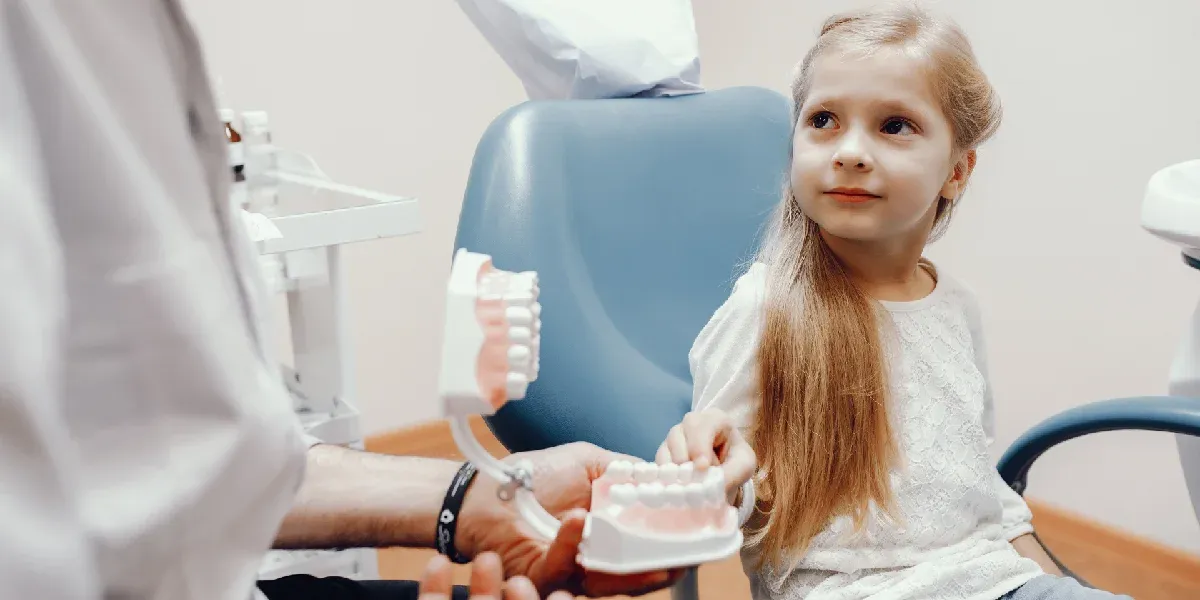
Preventative Care for Children: Tips for Good Oral Hygiene
Establishing good dental habits and preventive care practices early on can significantly impact children's oral health as they grow. Preventative care sets the foundation for strong and healthy teeth, reduces the risk of dental issues, and promotes a bright smile that lasts a lifetime.
Children's teeth are susceptible to dental problems, including tooth decay, cavities, and gum diseases. However, with the proper preventative care measures, we can take proactive steps to protect their dental health.
Preventative care for children goes beyond regular brushing and flossing; it encompasses a range of practices that work together to maintain optimal oral hygiene. From proper nutrition and regular dental check-ups to teaching effective brushing techniques, instilling these habits early on can have long-lasting benefits and save our children from unnecessary pain and discomfort.
This blog post will look into the essential tips and strategies for ensuring good oral hygiene in children, empowering you with the knowledge and tools to give your child the best possible dental care.
Preventative Care for Children and Its Importance
Preventive care is a proactive approach to maintaining health and well-being by preventing potential health issues before they arise or become more serious. In children's oral health, preventative care involves adopting habits, practices, and interventions to prevent dental problems rather than treating them after they occur.

It focuses on promoting good oral hygiene, establishing healthy habits, and seeking early intervention to minimize the risk of dental diseases and promote optimal oral health. The importance of preventative care for children's oral health is undeniable. Here are some key reasons why it is crucial:
- Prevention of Dental Problems: Preventative care measures such as regular brushing, flossing, and dental check-ups help prevent common dental issues such as tooth decay, cavities, gum diseases, and bad breath. Parents can significantly reduce the risk of these problems by implementing preventive measures and ensuring their child's oral health.
- Cost Savings: Preventative care is not only beneficial for oral health but also for financial well-being. By preventing dental problems or detecting them early, parents can avoid costly treatments and interventions for more advanced dental issues. Regular check-ups and cleanings are often more affordable than extensive dental procedures.
- Long-Term Oral Health: Establishing good oral hygiene habits and preventive care practices from an early age sets the foundation for long-term oral health. By instilling these habits, parents help children develop a lifelong commitment to caring for their teeth and gums, leading to healthier smiles as they grow older.
- Overall Well-Being: Dental pain and discomfort can impact a child's quality of life, hinder his ability to concentrate in school, and even affect his self-esteem. Preventative care helps maintain optimal oral health, contributing to a child's overall well-being and quality of life.
- Early Detection of Issues: Regular dental check-ups as part of preventative care allow for the early detection of potential dental issues. Dental professionals can identify problems in their early stages when they are easier to treat and manage. Early intervention prevents oral health problems from progressing and reduces the need for extensive treatments.
- Education and Empowerment: Preventative care provides an opportunity for education and empowerment. By teaching children about the importance of oral hygiene and involving them in their dental care, parents empower them to take responsibility for their oral health. This knowledge and awareness equip children with the tools to make informed decisions and prioritize their dental well-being.
Parents can establish the groundwork for their children's lifelong oral health by implementing preventive measures and ensuring regular dental care, paving the way for healthy smiles and optimal well-being.
“Tooth decay stands as one of the most common chronic childhood diseases. At least one untreated decayed tooth in approximately 20% of children aged 5 to 11 emphasizes the importance of implementing effective preventive measures and providing proper dental care. Preventive measures can help reduce the incidence of dental decay significantly”.
Preventative Caring Strategies
The early years of a child's life are crucial for establishing habits that lay the foundation for their future well-being. Regarding oral health, preventative care ensures that children grow up with healthy teeth and gums.
As parents and caregivers, we are responsible for providing them with the necessary tools and guidance to maintain optimal oral hygiene practices. From proper brushing techniques to the importance of a balanced diet and regular dental check-ups, we will cover a variety of strategies that contribute to your child's overall oral health.
By implementing preventative care techniques, you can help safeguard your child's oral health, promote good habits, and minimize the risk of dental problems. Consult your dentist for personalized guidance and recommendations based on your child's needs. Let's explore preventative caring strategies that nourish your child's oral health care.
- Early Dental Visits: Start taking your child to the dentist by their first birthday or within six months after their first tooth erupts. Regular dental check-ups allow the dentist to monitor your child's oral health and provide guidance on proper care.
- Fluoride Use: To ensure proper oral care for your child, use fluoride toothpaste suitable for their age. For children under three years old, apply a tiny amount of toothpaste, roughly the size of a rice grain. For children aged three and above, a pea-sized amount is enough. Fluoride strengthens tooth enamel and effectively prevents cavities.

- Dental Sealants: Consider dental sealants for your child's permanent molars. These sealants offer an extra defense in safeguarding your child's teeth from decay.
- Balanced Diet: Encourage a well-balanced diet for your child that includes fruits, vegetables, whole grains, and low-fat dairy products. Limit sugary snacks and drinks, as they contribute to tooth decay.
- Limit Bottle Use: Avoid putting your child to bed with anything other than a water-filled bottle to prevent tooth decay (known as "baby bottle tooth decay").
- Thumb-Sucking and Pacifier Use: If your child uses a pacifier, try to wean them off by age two to prevent potential dental issues. Prolonged thumb-sucking or pacifier use can affect teeth alignment and jaw development.
Tips for Good Oral Hygiene in Children
By cultivating good dental habits early on, we empower children to take control of their oral health and prevent dental problems. A comprehensive oral hygiene routine goes beyond brushing and flossing—it's about instilling positive habits, making oral care fun, and educating children about the significance of maintaining a healthy mouth.
We can equip children with the knowledge and skills to keep their teeth and gums strong and bright through engaging techniques, parental guidance, and regular dental visits. Here are some valuable tips for teaching good oral hygiene in your child's daily routine.
- Supervised Brushing: Assist your child with brushing until he can do it effectively, usually around age 6 or 7. Make your child's habit of brushing his teeth at least twice a day.
- Gentle Brushing: Teach your child to brush gently using a soft-bristled toothbrush. Use a small, pea-sized amount of fluoride toothpaste.
- Proper Brushing Technique: Teach your child to brush in gentle circular motions, covering all surfaces of the teeth, including the front, back, and chewing surfaces. Supervise your child so that he brushes his teeth for at least two minutes each time.
- Flossing: Start flossing your child's teeth when he has two teeth that touch. Use child-friendly flossing tools or floss picks designed for kids to make it easier and more enjoyable.
- Lead by Example: Let your child see you practicing good oral hygiene habits. Children often mimic their parents' behaviors, so demonstrating proper brushing and flossing techniques sets a positive example.
- Fun and Engaging: Make oral hygiene a fun and engaging activity for your child. For instance, use a colorful toothbrush and interactive apps or videos that teach proper brushing techniques.
- Regular Dental Check-ups: Schedule regular dental visits for your child every six months. These visits allow the dentist to assess their oral health, provide preventive treatments, and address concerns.
Concluding Thoughts
Prioritizing preventative care, such as Pediatric Tooth Decay Stockton, and instilling good oral hygiene habits in children is crucial to their overall health and well-being. Inculcating these habits prevents tooth decay, cavities, and gum disease, promotes positive self-care routines, and instills a sense of responsibility for their well-being.
Making oral hygiene fun, engaging, and age-appropriate creates a positive association with dental care that can last a lifetime. By modeling proper brushing and flossing techniques, encouraging consistency, and fostering a supportive environment, parents and caregivers can set the stage for a lifetime of good oral health.
Contact your kids' dentist in Stockton, Dr. Sajjad Rizvi, D.D.S. at Happy Kids Dental, to know more about Preventative Care for Children: Tips for Good Oral Hygiene.
Resource:
How do we detect early tooth decay in children?
*This media/content or any other on this website does not prescribe, recommend, or prevent any treatment or procedure. Therefore, we highly recommend that you get the advice of a qualified dentist or other medical practitioners regarding your specific dental condition.*
Subscribe To Our Newsletter
Get Updates And Learn From The Best


